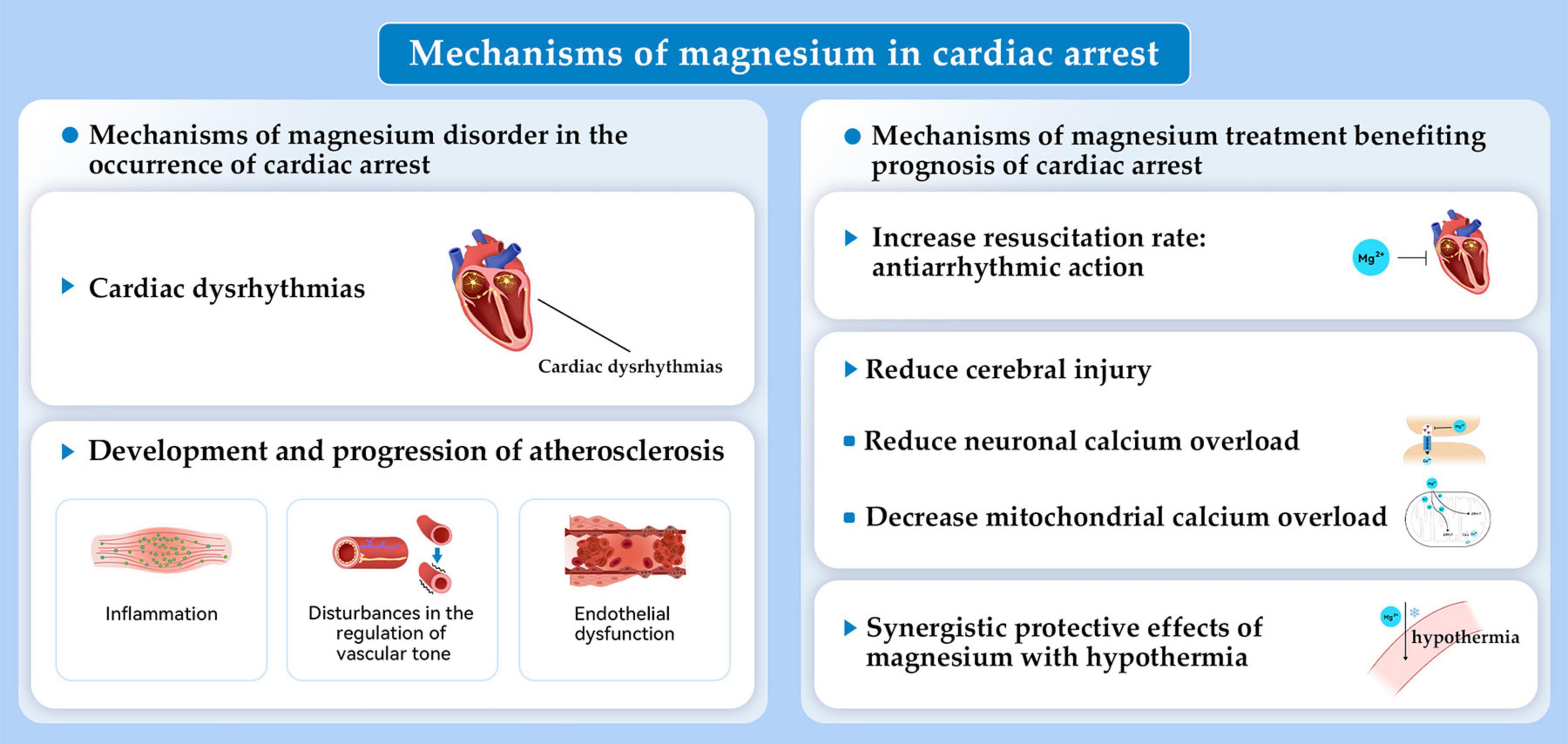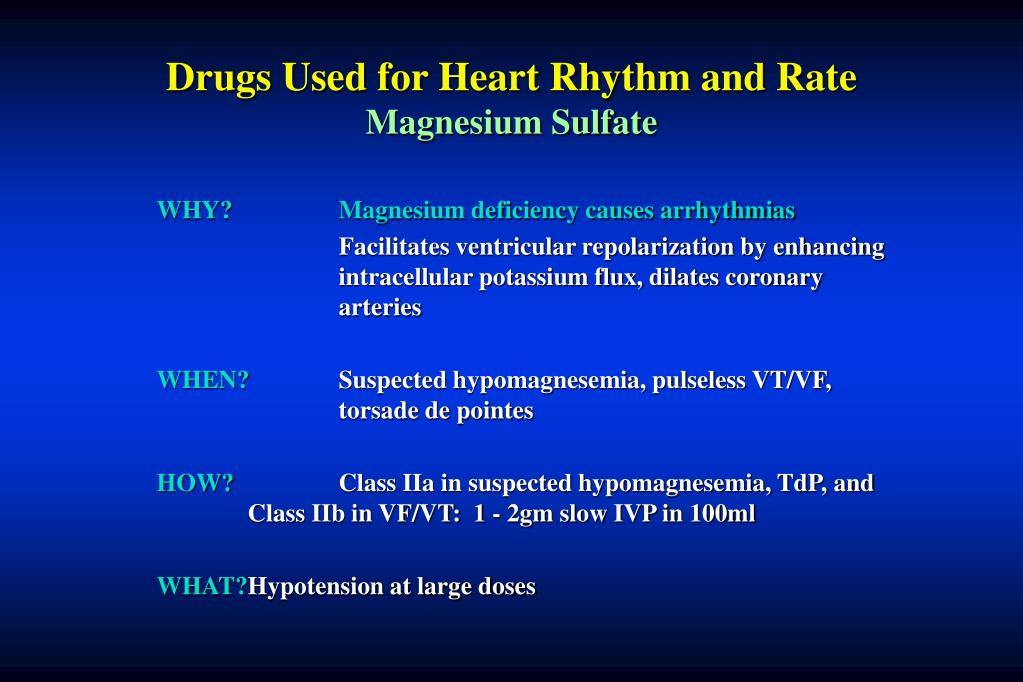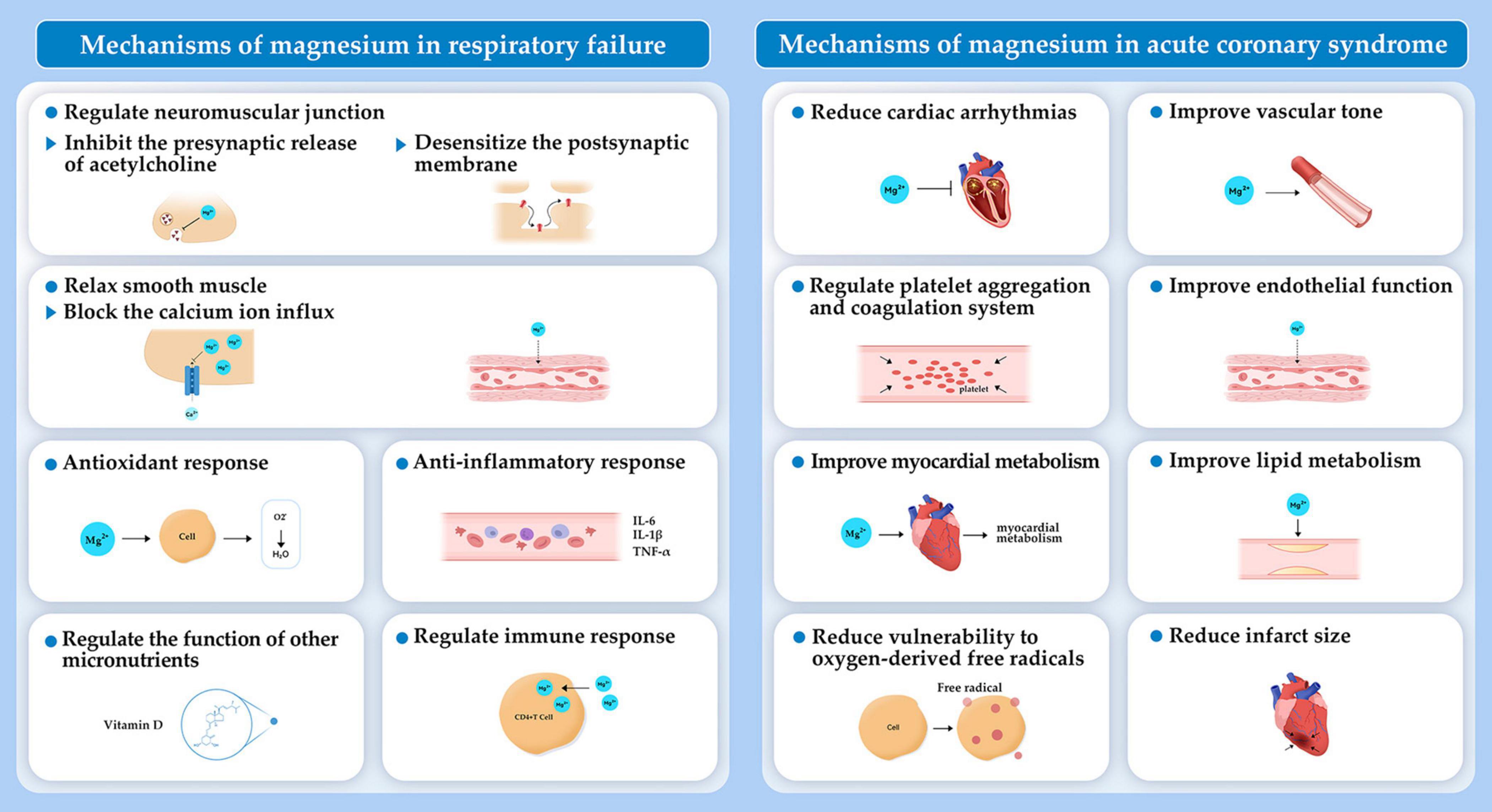What Is The Indication For Magnesium In Cardiac Arrest - Here, we summarize studies on magnesium and the prognosis of cardiac arrest in basic studies, clinical studies, and the combined effect of. Indications for use of magnesium sulfate: High quality cpr should be at a rate of how many chest compressions per minute. A patient with possible stemi has ongoing chest discomfort. Magnesium sulfate is effective as an anticonvulsant and an antiarrhythmic.
Magnesium sulfate is effective as an anticonvulsant and an antiarrhythmic. Here, we summarize studies on magnesium and the prognosis of cardiac arrest in basic studies, clinical studies, and the combined effect of. A patient with possible stemi has ongoing chest discomfort. Indications for use of magnesium sulfate: High quality cpr should be at a rate of how many chest compressions per minute.
Magnesium sulfate is effective as an anticonvulsant and an antiarrhythmic. A patient with possible stemi has ongoing chest discomfort. Indications for use of magnesium sulfate: Here, we summarize studies on magnesium and the prognosis of cardiac arrest in basic studies, clinical studies, and the combined effect of. High quality cpr should be at a rate of how many chest compressions per minute.
Magnesium Sulfate 4g
Magnesium sulfate is effective as an anticonvulsant and an antiarrhythmic. Here, we summarize studies on magnesium and the prognosis of cardiac arrest in basic studies, clinical studies, and the combined effect of. High quality cpr should be at a rate of how many chest compressions per minute. Indications for use of magnesium sulfate: A patient with possible stemi has ongoing.
Frontiers The role of magnesium in cardiac arrest
Indications for use of magnesium sulfate: Magnesium sulfate is effective as an anticonvulsant and an antiarrhythmic. Here, we summarize studies on magnesium and the prognosis of cardiac arrest in basic studies, clinical studies, and the combined effect of. A patient with possible stemi has ongoing chest discomfort. High quality cpr should be at a rate of how many chest compressions.
PPT Overview of ACLS Pharmacology and Update on New ACLS Guidelines
High quality cpr should be at a rate of how many chest compressions per minute. Indications for use of magnesium sulfate: A patient with possible stemi has ongoing chest discomfort. Here, we summarize studies on magnesium and the prognosis of cardiac arrest in basic studies, clinical studies, and the combined effect of. Magnesium sulfate is effective as an anticonvulsant and.
ACLS Pharmacology dr shabeel pn. ppt download
Indications for use of magnesium sulfate: High quality cpr should be at a rate of how many chest compressions per minute. A patient with possible stemi has ongoing chest discomfort. Magnesium sulfate is effective as an anticonvulsant and an antiarrhythmic. Here, we summarize studies on magnesium and the prognosis of cardiac arrest in basic studies, clinical studies, and the combined.
Table 2 from Important Changes in the ACLS 2000 Guidelines for the
High quality cpr should be at a rate of how many chest compressions per minute. Magnesium sulfate is effective as an anticonvulsant and an antiarrhythmic. Here, we summarize studies on magnesium and the prognosis of cardiac arrest in basic studies, clinical studies, and the combined effect of. A patient with possible stemi has ongoing chest discomfort. Indications for use of.
magnesium cardiac arrest
A patient with possible stemi has ongoing chest discomfort. Indications for use of magnesium sulfate: Magnesium sulfate is effective as an anticonvulsant and an antiarrhythmic. Here, we summarize studies on magnesium and the prognosis of cardiac arrest in basic studies, clinical studies, and the combined effect of. High quality cpr should be at a rate of how many chest compressions.
Acls medications
High quality cpr should be at a rate of how many chest compressions per minute. A patient with possible stemi has ongoing chest discomfort. Magnesium sulfate is effective as an anticonvulsant and an antiarrhythmic. Indications for use of magnesium sulfate: Here, we summarize studies on magnesium and the prognosis of cardiac arrest in basic studies, clinical studies, and the combined.
Frontiers The role of magnesium in cardiac arrest
Magnesium sulfate is effective as an anticonvulsant and an antiarrhythmic. Here, we summarize studies on magnesium and the prognosis of cardiac arrest in basic studies, clinical studies, and the combined effect of. Indications for use of magnesium sulfate: High quality cpr should be at a rate of how many chest compressions per minute. A patient with possible stemi has ongoing.
Magnesium And Anaesthesia WFSA Resources
High quality cpr should be at a rate of how many chest compressions per minute. A patient with possible stemi has ongoing chest discomfort. Indications for use of magnesium sulfate: Here, we summarize studies on magnesium and the prognosis of cardiac arrest in basic studies, clinical studies, and the combined effect of. Magnesium sulfate is effective as an anticonvulsant and.
Rapid Treatment with Intramuscular Magnesium Sulfate During
Here, we summarize studies on magnesium and the prognosis of cardiac arrest in basic studies, clinical studies, and the combined effect of. A patient with possible stemi has ongoing chest discomfort. Indications for use of magnesium sulfate: High quality cpr should be at a rate of how many chest compressions per minute. Magnesium sulfate is effective as an anticonvulsant and.
High Quality Cpr Should Be At A Rate Of How Many Chest Compressions Per Minute.
Indications for use of magnesium sulfate: Magnesium sulfate is effective as an anticonvulsant and an antiarrhythmic. Here, we summarize studies on magnesium and the prognosis of cardiac arrest in basic studies, clinical studies, and the combined effect of. A patient with possible stemi has ongoing chest discomfort.



.jpg)





